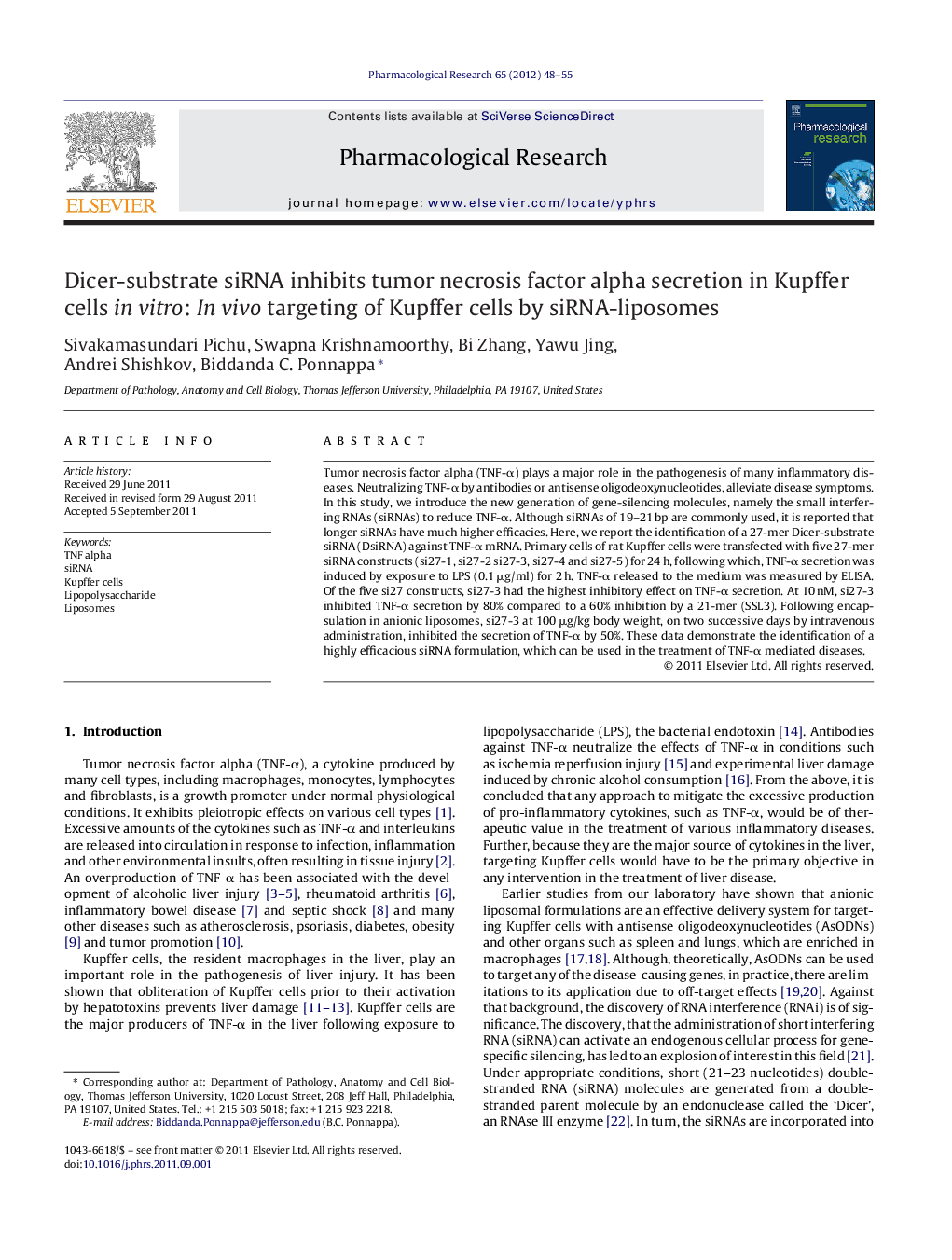| Article ID | Journal | Published Year | Pages | File Type |
|---|---|---|---|---|
| 2562324 | Pharmacological Research | 2012 | 8 Pages |
Tumor necrosis factor alpha (TNF-α) plays a major role in the pathogenesis of many inflammatory diseases. Neutralizing TNF-α by antibodies or antisense oligodeoxynucleotides, alleviate disease symptoms. In this study, we introduce the new generation of gene-silencing molecules, namely the small interfering RNAs (siRNAs) to reduce TNF-α. Although siRNAs of 19–21 bp are commonly used, it is reported that longer siRNAs have much higher efficacies. Here, we report the identification of a 27-mer Dicer-substrate siRNA (DsiRNA) against TNF-α mRNA. Primary cells of rat Kupffer cells were transfected with five 27-mer siRNA constructs (si27-1, si27-2 si27-3, si27-4 and si27-5) for 24 h, following which, TNF-α secretion was induced by exposure to LPS (0.1 μg/ml) for 2 h. TNF-α released to the medium was measured by ELISA. Of the five si27 constructs, si27-3 had the highest inhibitory effect on TNF-α secretion. At 10 nM, si27-3 inhibited TNF-α secretion by 80% compared to a 60% inhibition by a 21-mer (SSL3). Following encapsulation in anionic liposomes, si27-3 at 100 μg/kg body weight, on two successive days by intravenous administration, inhibited the secretion of TNF-α by 50%. These data demonstrate the identification of a highly efficacious siRNA formulation, which can be used in the treatment of TNF-α mediated diseases.
Graphical abstractFigure optionsDownload full-size imageDownload as PowerPoint slide
